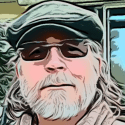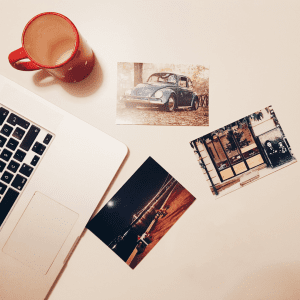The Brain Energy Support Team (BEST) is honored and delighted to welcome our newest BEST blog contributor.

Please welcome Rod Rawls, creator, writer, blogger and moderator of A Changing World: How One TBI Survivor and One Family Caregiver is Trying To Keep Up .
Rod was kind enough to allow BEST to share his blog articles and personal essays on the BEST blog and he will be contributing original article and essay exclusives.
Rod sustained a traumatic brain injury (TBI) in a motorcycle accident several years ago. In his writing, he documents his journey forward after brain injury and offers tips and strategies for fellow survivors and caregivers.
Rod is passionate about helping and supporting others.
Below is a recent blog post from Rod’s blog.
(This article was reprinted with the author’s permission).
Brain Injury: When Once-Shared Memories are No Longer Shared…
One of the things many brain injury survivors have to become accustomed to is when friends and family reminisce with them about things they have absolutely no memory of. I’ve learned that it creates quite a mix of feelings – from both sides. One of my frequent experiences since my injury is drawing a complete blank when someone has a nostalgic moment about a shared experience and then seeing the disappointment rise when that person perceives the complete lack of recognition in my face.
The greatest level of emotional impact from my missing memories has been with my girlfriend. When memories that should last a lifetime have suddenly disappeared from your reality but not your partner’s, it can be hard for both of you. As one example, we did a cross country motorcycle ride together to the annual Sturgis rally in North Dakota. For her, it’s like it was last week… her memories fresh and alive about happy moments and memorable experiences. For me, it’s like I saw part of a trailer for that movie once. I have bits and pieces of memories from the trip, with just a few specific memories such as riding through a long canyon next to a river, walking on a street full of motorcycles and people, and a late-night ride in the rain on what seemed to be a forgotten road. She often shares her memories from the event, and always makes a brilliant effort to suppress her disappointment each time she finds a new memory that is very special to her which I no longer share.
It saddens me that I don’t remember, and it frustrates me greatly that these things don’t just come back to me when I try to find them. In a somewhat weak attempt to make light of my disability, I will sometimes ask her who that guy is standing next to her in the many pictures of us she has on display from before the injury. But there’s the key word, one that I almost never use – and that isn’t easy to write in this post about me… disability.
How could I be disabled? I’m ok, just some memory issues, right? Well, and the fact that I don’t read as well as I used to. And, I now struggle with basic mathematics. Oh, and, that between the aphasia and a comparatively minor physical speech impairment, my verbal communication can be challenging. Yes, the list could continue, but the point is that recognizing that I have a disability is something I still find very difficult. And here’s where I recognize behavior that occurs way too much in daily conversations – when a single word derails my train of thought completely, and I suddenly find I’ve jumped to a diverging track. Let’s get back to the topic at hand…
The point of this post is simply to recognize this aspect of our new reality, because there’s not much we can do to change it anyway except to wait and see what comes back through time. The best we can do in those moments is to address what happens when it occurs – both how we handle the thoughts and feelings it creates inside us, as well as how we respond to those who may be unintentionally hurt when these broken connections manifest.
The unfortunate reality is that most of my pre-injury memories fall into categories of broken, fuzzy or non-existent. My first outward response is always dependent on the specific interpersonal relationship and the level of familiarity present with the person I’m talking to. For business associates and more casual acquaintances, I just inform (or remind) them of my brain injury and let them know that I can’t recall the time or event they are describing. With friends and family I try to take a different approach, a “help me remember” approach… asking them for details and context to see if we can find and uncover a memory buried but not completely lost. Sometimes we can find bits that we can piece together and sometimes it’s either buried too deep or just lost. Regardless of the end result, the act of discussing the details is the nearest we can come to sharing the memory, and this creates a shared moment that helps to keep connections strong and reduce the potential negative impacts of our broken memories on those we care about.


